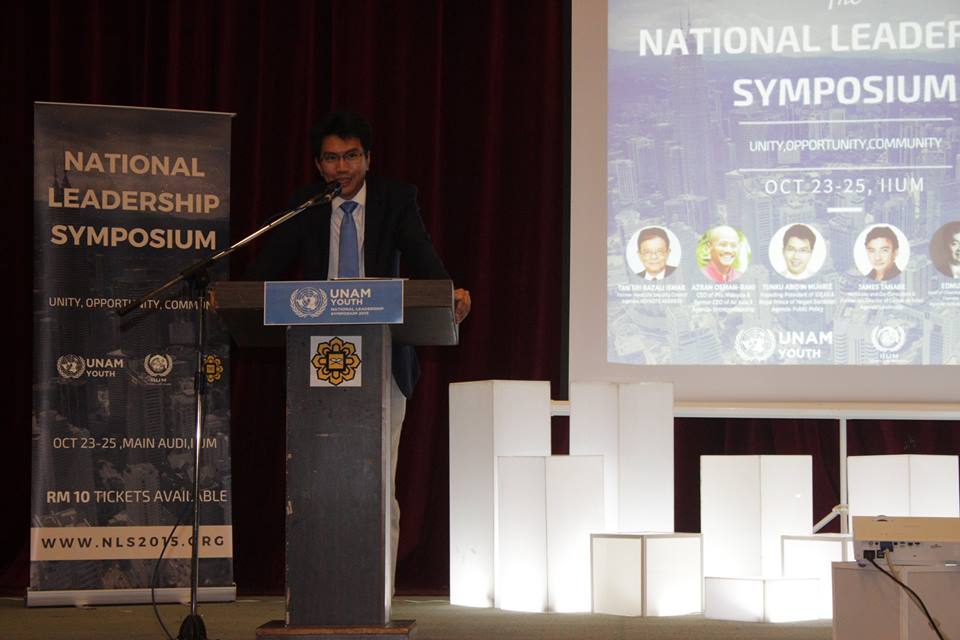By Azra Farzana Shuib
GOMBAK, 24 October 2015: University students and youths were reminded to look back at the history of the country and the contributions of the late Father of Independence of Malaysia, Tunku Abdul Rahman Putra, which were in line with the real demands of public policies and the charters of the United Nations.
Founding President of the Institute for Democracy and Economic Affairs (IDEAS), Tunku Zain Al-˜Abidin, gave this useful advice to aspiring leaders during the National Leadership Symposium that took place at the university’s Main Auditorium yesterday.
The talk under the theme œPublic Policy: Replicating Best Practices for Sustainable Living was presented in front of Model United Nations delegates from various universities.
The Royal Prince of Negeri Sembilan made a lot of remarks about the late Tunku Abdul Rahman and noted how the ideas of our founding father were seen to be “in line with public policies and the charters of the United Nations.”
He said in todays context, we have been using public policies in the restrictive sense instead of in the good way. This happened especially when public policies were only seen as a political tool narrowly defined by politicians to ensure their own political survival.
Tunku Zain also drew attention that the state of our living necessitates institutions which are independent, understands the rules of constitution and operates according to the vision in which they were formed, the principles that the founding fathers adhered to – a government that knows its limits, individual liberty, the power of markets, and the like.
“If we are able to remind ourselves of these principles, only then we can ensure sustainable leadership.”
“An updated notion of Malaysian patriotism nowadays is that if one is patriotic, then one must do certain things. One of them is of course, to be involved in politics,” he said.
This, according to Tunku Zain, is “a very disturbing point of view.” He mentioned that we do not need to be condescended upon to show our patriotism.
He stressed that there are so many ways to be a leader and encouraged young people to be active in things they are passionate about, whether it is to save the environment, to help the homeless, or even to provide education for children refugees. There will be many organisations that youths can take part in, and that in itself, can make a huge impact outside the political system.
He then posed a question to the audience, “Where does this philosophy of best practices start?”
Of course, he said, “it must start at home.” Â He encouraged the audience to ask their parents or grandparents about the optimism of Malaya during the Merdeka years, and whether or not that optimism is still around.
“There is a lot to learn from our families, but our curriculum nowadays only teaches us how to be a citizen, and has somehow weakened our understanding of how our institutions function, and this is certainly not a sustainable way to carry out our public policies.”
He also shared his experiences, in which he went to different schools or campuses every week, and he would always ask the same question to the young people: œDo all of you know the picture of Tunku Abdul Rahman and Merdeka, and do you know what was he thinking about when he said that? Do you know how he got there? In the last five to ten years before that image came about, what was he trying to achieve?
œIt makes a lot of people realised that it was not an easy job negotiating for Merdeka,
“That is the reason why we should get our curriculum right as it is pivotal that Malaysians understand why our institutions were created that way,” he concluded.***
